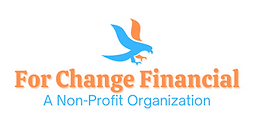
Budgeting is often viewed as a daunting task, reserved for adults with stable careers and families to support. However, the truth is that budgeting is a valuable skill that everyone should develop, regardless of age or financial status. Whether you're a college student, a recent graduate, or even a teenager earning an allowance, understanding how to manage your finances is crucial for building a secure future. So, when should you start budgeting? The answer is simple: as soon as possible.
The Importance of Budgeting
Budgeting is essentially a roadmap for your finances. It allows you to track your income, expenses, and savings, helping you make informed decisions about how to allocate your money. By creating and following a budget, you gain control over your financial situation, avoid overspending, and work towards achieving your long-term goals, such as buying a home, starting a business, or retiring comfortably.
Starting Early Pays Off
One of the most significant advantages of starting to budget early in life is the opportunity to develop good financial habits. Like any skill, budgeting takes practice, and the earlier you start, the more proficient you'll become. By mastering budgeting basics at a young age, you set yourself up for financial success in the future.
Budgeting for Students and Young Adults
For students and young adults, budgeting may seem less urgent, especially if you're not yet earning a substantial income. However, this is precisely the time when budgeting can have the greatest impact. Whether you're managing a part-time job income, student loans, or allowances from parents, creating a budget allows you to prioritize your spending, save for upcoming expenses, and avoid debt traps.
How to Start Budgeting
If you're unsure where to begin, here are some steps to help you get started with budgeting:
Track Your Expenses: Keep a record of everything you spend money on for a month. This will help you understand where your money is going and identify areas where you can cut back.
Set Financial Goals: Determine what you want to achieve with your money, whether it's paying off debt, saving for a vacation, or building an emergency fund.
Create a Budget: Based on your income and expenses, create a budget that allocates money for essentials like rent, groceries, and transportation, as well as savings and discretionary spending.
Stick to Your Budget: Once you have a budget in place, stick to it as closely as possible. Be mindful of your spending habits and make adjustments as needed.
Review Regularly: Regularly review your budget to track your progress towards your goals and make any necessary adjustments.
Budgeting is a valuable skill that everyone should develop, regardless of age or financial status. Starting early allows you to develop good financial habits, gain control over your finances, and work towards achieving your long-term goals. Whether you're a student, a young adult, or someone further along in your career, there's no better time than now to start budgeting. By taking control of your finances today, you're investing in a more secure and prosperous future.

Comments